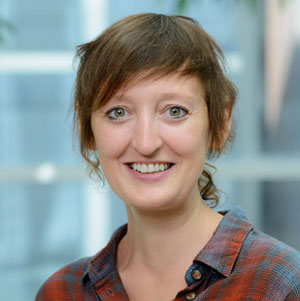First day of 23rd Radio Assembly focusses on innovation and challenges
04 May 2017
The challenges facing public service radio in the “post fact” world were among the topics discussed on the first day of the 23rd Radio Assembly in Pilsen, Czech Republic on 3 May.
Opening the Assembly Rene Zavoral, DG of hosts Czech Radio (CR), told over 70 delegates from 35 Members and Associates that in the meeting “we can be innovative and creative.”
Graham Ellis, Chair of the EBU Radio Committee, thanking the hosts added: “It’s through the support of Members like CR that our union can do what it does. In these uncertain times the need for independent public service media (PSM) and informed democracy has never been greater.”
Outlining EBU Media’s core strategies, the department’s Director Jean Philip de Tender told Members that the EBU is committed to supporting their digital transformation, redefining journalism and helping them to reach all audiences and guarantee outstanding content.
“There is a fundamental change in how PSM is organised today – the EBU needs to be part of this so we can learn from this change and disseminate it,” he said. “We need to prioritise what we do and be there when you have strategic challenges.”
Graham Dixon, Head of Radio, continued that it was “encouraging to find that what we do at the EBU in our daily lives is of value to your organisations.”
He thanked Members for their willingness to participate in projects. “It wouldn’t be a union without you and your contribution,” he told them before sharing the priorities for EBU’s Radio unit: promoting digital transition, sustain classical music, developing non classical musics, promote innovating and generating non-music projects.
Day 1 continued with a keynote on “Public Service Media in the post-truth world” from Professor Gregory Ferrell Lowe from the University Of Tampere, Finland.
His 7 recommendations included to “understand that people’s fears are true and work to better understand their concerns and causes for their perceptions.”
“PSM must be a fair but critical voice and vigorously defend the non-commercial status of PSM, defend the principle of impartiality and take a leadership role,” he argued. “PSM exists to provide services to civil society and are not competing for consumers but for hearts and minds.”
In the debate that followed Arthur Landwehr, Editor in Chief of SWR in Germany, told delegates that surveys in Germany show that 70% of audiences trust PSM and offered his perspective:
“We’ve always had fake news - we used to call propaganda - the new situation is that there is so called alternative media today – it’s so easy to publish with no checks and balances. People are confused and what I’m convinced of is that we have to be consistent in what we’re doing. I see our role in helping audiences sort out what is fact – to help them consume correct news.”
Els van de Sijpe, Media Manager for Radio at Belgian Flemish Member VRT, said that PSM makes a difference “not only with content and news but in the music we play. In a survey we conducted we showed that 6,000 artists would not have been played on radio without PSM in Flanders. We are offering value to society.”
Day 1 of the Assembly also saw Members discuss the challenges of doing more with a smaller budget. When posed the question of how to make savings of 20% across the board the panel from HR, RTE, BNR and DR mostly agreed on merging services and the importance of continuing to provide unique offers, such as classical music and supporting orchestras.
The Assembly also heard from two beneficiaries of the EBU’s Radio Innovation Fund. The first, Czech Radio detailed an immersive storytelling project bringing the events following the Soviet invasion of Czechoslovakia in 1968 to life. The second from RTV Slovenia showed how the marriage of radio and social media in the multi-platform “Hej DJ” is bringing new audiences to PSM.
“Radio has always been social but today encouraging interaction is the mission so there is great need to adapt – integrating new platforms is the key to success,” said Managing Editor Mirko Stular.
The format sees two DJs compete to win the votes of an online audience who use emojis on Facebook to show which set they prefer. The show is broadcast on FM and on Facebook where video views have broken previous record views and the biggest audience are men aged 18 to 24.
“Most importantly,” Stular added, “the outcome is viral sharing in the target young audience group and lots of user generated content being received.”
Members also found out more about the success of Norway’s digital switchover from NRK which is resulting in an increase in audiences for many local and new digital stations as well as discovering Swedish Radio’s new “Next generation project”, an interface created for tablets and smart phones which makes it possible to run a show from any location without OB trucks or engineers or master control switching.
“This means” said SR’s Head of IT infrastructure Lars Hedh, “that journalists can be present and more visible in the community and focussed on the content. A radio host has all the function to do a complete show – and reporters have a backpack allowing broadcasts from anywhere, any time.”
Day 2 of the 23rd Radio Assembly will explore third-party devices, aggregation and new platforms as well as hearing recent research on listening trends and the continuing importance of live listening.
Elections will also take place for a new Radio Committee which will serve a two-year term.
Relevant links and documents
Contact






